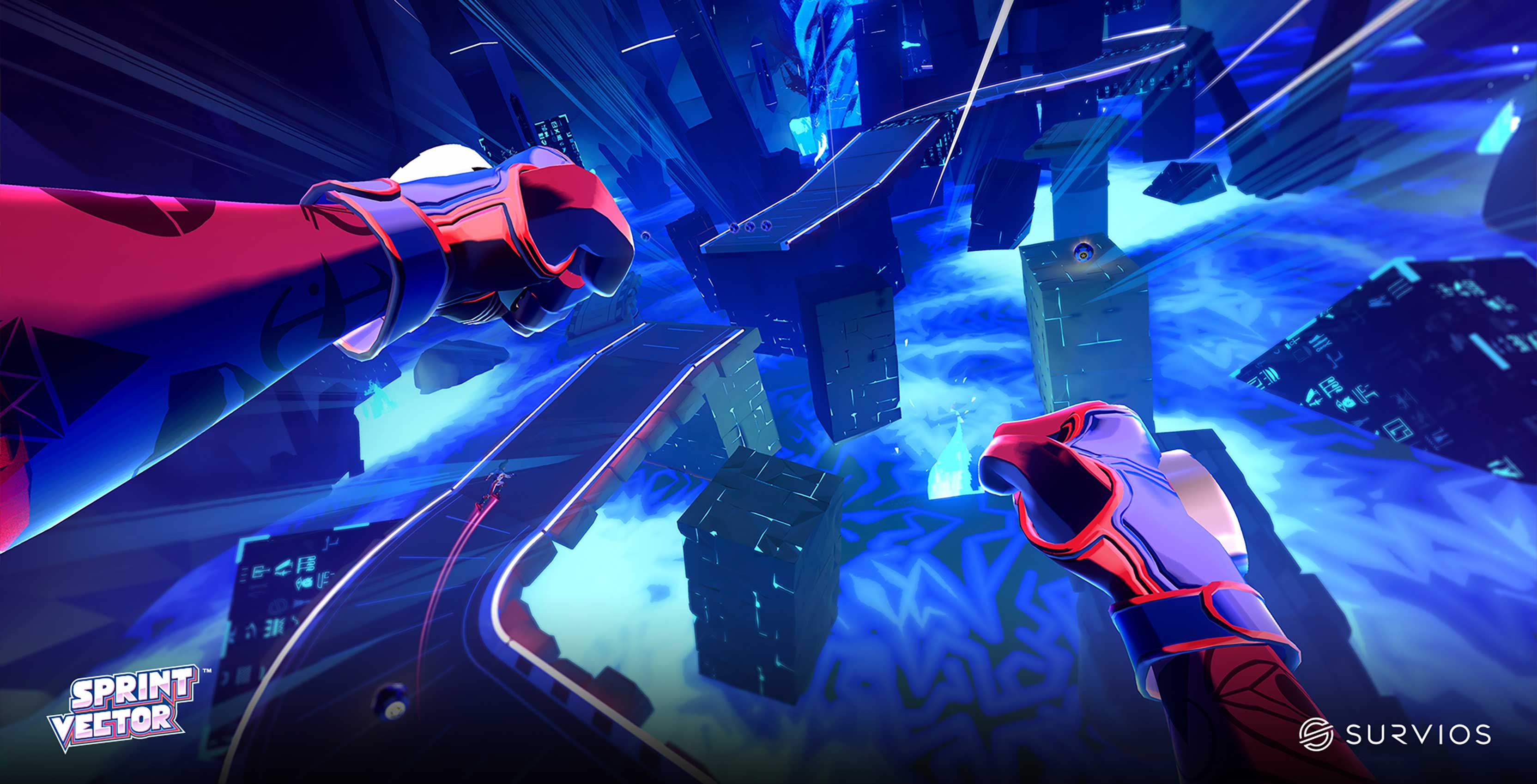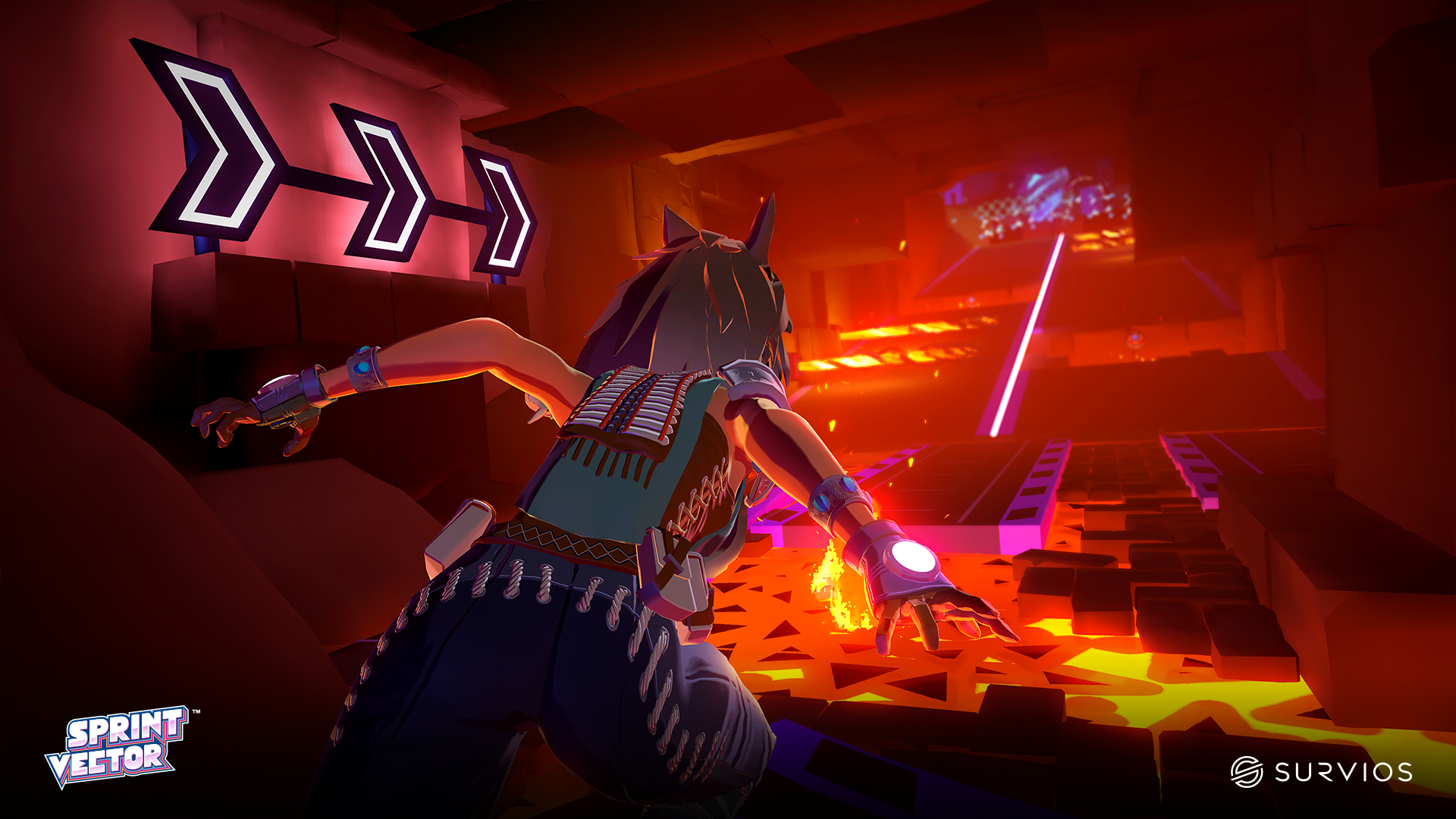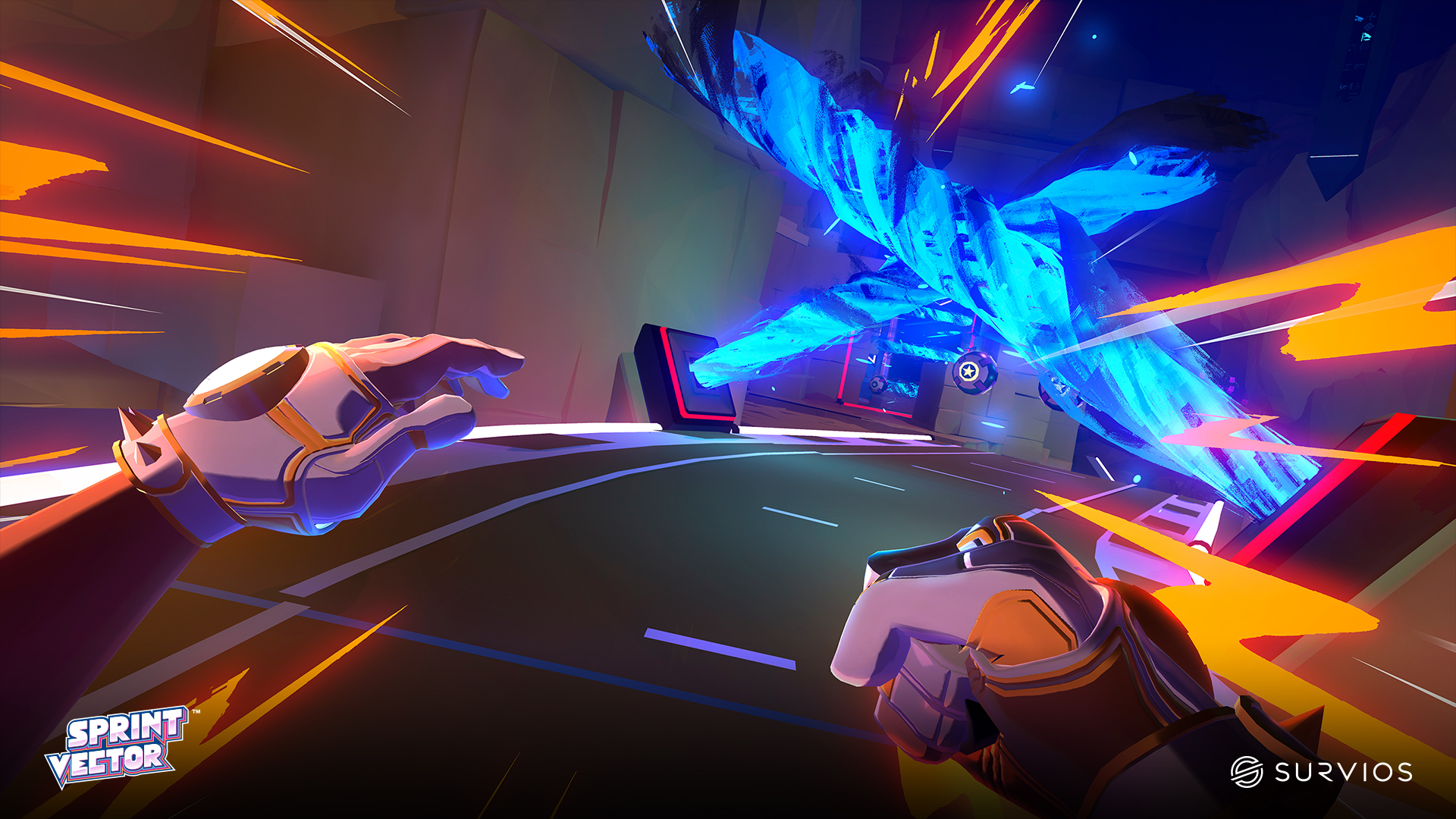
Many VR games try to minimize the amount of movement and controls in order to maximize the level of immersion and comfort. Moving too fast or having too much thrown at you at once while wearing a headset can often lead to an overwhelmingly unpleasant experience.
That’s why it was surprising to see that developer Survios has created a VR racing title that’s all about high speed and tricky maneuvers. What’s more, Sprint Vector takes advantage of its ‘gotta go fast’ conceit to offer an incredibly engaging VR experience unlike any other.
Sprint Vector, you take part in a charmingly absurd reality game show. You’ll be able to use one of eight distinct competitors, such as DJ, graffiti artist or gangster shark, all of whom sport delightfully quirky personalities. What really sets Sprint Vector apart, however, is its gameplay, which features one of the most inventive uses of motion controls in a game to date.
To move, you’ll have to alternate swing your arms down while holding and releasing the triggers at the right time in a similar pattern to using ski poles. The stronger your swing, the more speed you’ll get. You’ll also need to move your body to turn and drift around corners.
Stages are can also be quite vertical, requiring you to time your controller swings to jump or scale rock climbing-esque. Along to the way, you’ll have to aim your controller to shoot obstacles like barrels that can slow you down on the track. In Mario Kart fashion, there are also several power-ups you can pick up, including trip mines, a nitro booster and an upgraded blaster that shoots homing projectiles.
Admittedly, this can take a bit of getting used to. The sheer number of techniques you can perform while racing can be a little overwhelming at first, especially since they’re handled through motion control. Thankfully, the game offers multiple in-depth tutorials featuring an enthusiastic narrator and instructional live-action videos, all of which go a long way to helping you get accustomed to the controls. Survios doesn’t call the movement system ‘Fluid Locomotion’ for nothing.
It’s also to Survio’s credit that none of the experience ever felt discomforting. Even while playing for a couple of hours at at time, I never experienced any of the uneasy feelings that one might expect with such a fast-paced VR experience. That said, expect to get tired — standing while quickly turning and twisting my body can actually be quite intense. Not many games ask for this kind of physical commitment out of the player, and Sprint Vector is all the more compelling because of it.
Overall, there’s a fair amount of content in Sprint Vector. You’ll be racing in 12 well-designed tracks that take place in eye-popping colourful locations. In solo content, opposing racers are handled through surprisingly challenging-yet-fair AI opponents. There are also nine obstacle course challenges that are appropriately difficult and feel rewarding to complete, although it would have been nice if there were more of them. Survios plans to support the game with weekly community challenges as well.
However, the Sprint Vector experience truly comes to life when facing off against other players. Because they’re headset-based, many VR games are isolating by nature and therefore lack much in the way of social elements. That’s not the case in Sprint Vector, allowing you to truly test your racing skills against other people in 2-8 player races. Dashing forward past one player to launch off a ledge, twisting around mid-air to blast him with my power-up is highly satisfying. Matches also ran smoothly and free from any connection issues.
Sprint Vector can be tricky to master, but once you get the hang of it, the game is an absolutely exhilarating experience. Survios has developed an innovative gameplay system that takes full advantage of the immersive qualities of VR. Don’t let this racer pass you by.
Sprint Vector is now available on PlayStation VR for $39.99 CAD ($31.99 for PlayStation Plus members until February 20th), Oculus Rift for $27.99 (regular $34.99) and HTC Vive for $32.99.
MobileSyrup may earn a commission from purchases made via our links, which helps fund the journalism we provide free on our website. These links do not influence our editorial content. Support us here.





